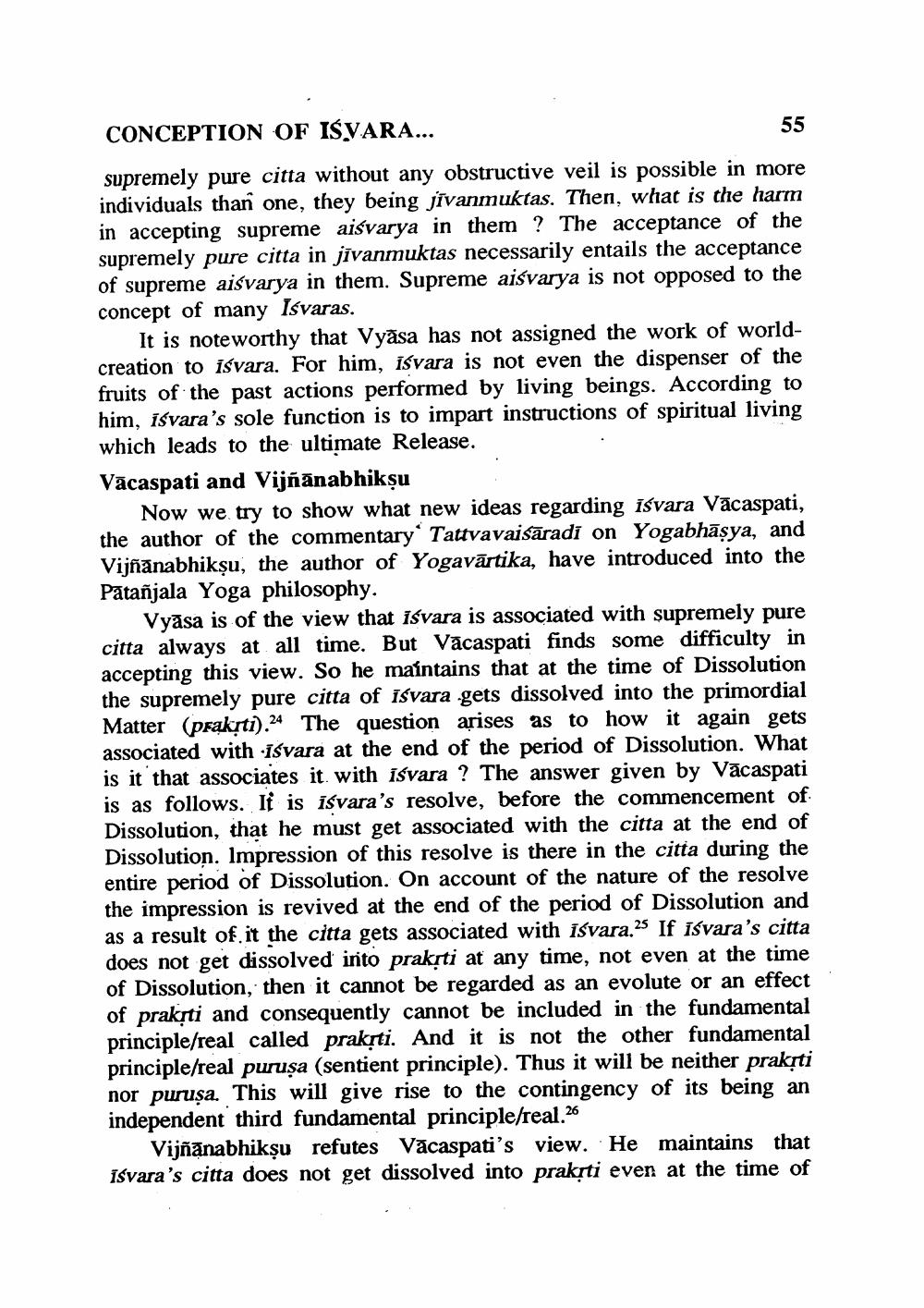________________
CONCEPTION OF ISVARA...
55
supremely pure citta without any obstructive veil is possible in more individuals than one, they being jīvanmuktas. Then, what is the harm in accepting supreme aišvarya in them ? The acceptance of the supremely pure citta in jivanmuktas necessarily entails the acceptance of supreme aišvarya in them. Supreme aišvarya is not opposed to the concept of many Isvaras.
It is noteworthy that Vyāsa has not assigned the work of worldcreation to iśvara. For him, iśvara is not even the dispenser of the fruits of the past actions performed by living beings. According to him, isvara's sole function is to impart instructions of spiritual living which leads to the ultimate Release. Vācaspati and Vijñānabhikṣu
Now we try to show what new ideas regarding iśvara Vācaspati, the author of the commentary Tattvavaisāradi on Yogabhāsya, and Vijñānabhikṣu, the author of Yogavārtika, have introduced into the Patañjala Yoga philosophy.
Vyāsa is of the view that iśvara is associated with supremely pure citta always at all time. But Vācaspati finds some difficulty i accepting this view. So he maintains that at the time of Dissolution the supremely pure citta of iśvara gets dissolved into the primordial Matter (prakrti).24 The question arises as to how it again gets associated with isvara at the end of the period of Dissolution. What is it that associates it. with iśvara ? The answer given by Vācaspati is as follows. li is īśvara's resolve, before the commencement of Dissolution, that he must get associated with the citta at the end of Dissolution. Impression of this resolve is there in the citia during the entire period of Dissolution. On account of the nature of the resolve the impression is revived at the end of the period of Dissolution and as a result of it the citta gets associated with iśvara.25 If iśvara's citta does not get dissolved into prakti at any time, not even at the time of Dissolution, then it cannot be regarded as an evolute or an effect of prakrti and consequently cannot be included in the fundamental principle/real called prakti. And it is not the other fundamental principle/real puruşa (sentient principle). Thus it will be neither prakrti nor puruşa. This will give rise to the contingency of its being an independent third fundamental principle/real.26
Vijñānabhikṣu refutes Vācaspati's view. He maintains that isvara's citta does not get dissolved into prakrti even at the time of




